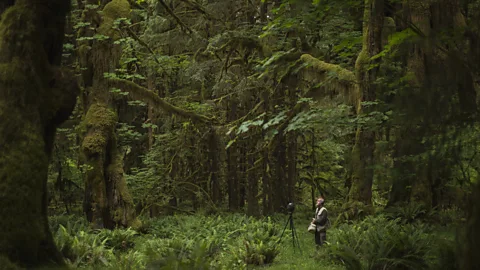The world's most endangered sound
 Shawn Parkin
Shawn ParkinIn an ever-louder world, Gordon Hempton has spent more than 40 years speaking out about the importance of saving silence. Is the world finally ready to listen?
Before you read any further, close your eyes and listen for a moment.
Did you hear the faint hum of a nearby appliance? Or the distant rumble of a plane overhead? Or the ing woosh, screeching brakes or grumbling exhaust from the road outside?
{"image":{"pid":""}}

50 Reasons to Love the World - 2021
Why do you love the world?
"Because I know that over the course of my career, every animal that I've ever recorded may have died, but that the place still has its voice." – Gordon Hempton, acoustic ecologist
{"image":{"pid":""}}
What you likely didn't hear is silence, and if you ask Gordon Hempton, that's a problem.
An acoustic ecologist, Hempton has circled the globe three times in the last 41 years searching for and documenting the planet's "solar-powered jukebox" of disappearing natural soundscapes. He's huddled inside a hollowed-out Sitka spruce the Pacific Northwest to record "the world's largest violin"; floated down the Amazon River in a dugout canoe to track the melodic trill of rare, migrating songbirds; and won an Emmy for his documentary, The Vanishing Dawn Chorus, which captures the cacophony of dawn breaking across six continents.
Yet, the sound Hempton is most concerned about preserving is the most endangered of all: quiet.
"Why save quiet">window._taboola = window._taboola || []; _taboola.push({ mode: 'alternating-thumbnails-a', container: 'taboola-below-article', placement: 'Below Article', target_type: 'mix' });
